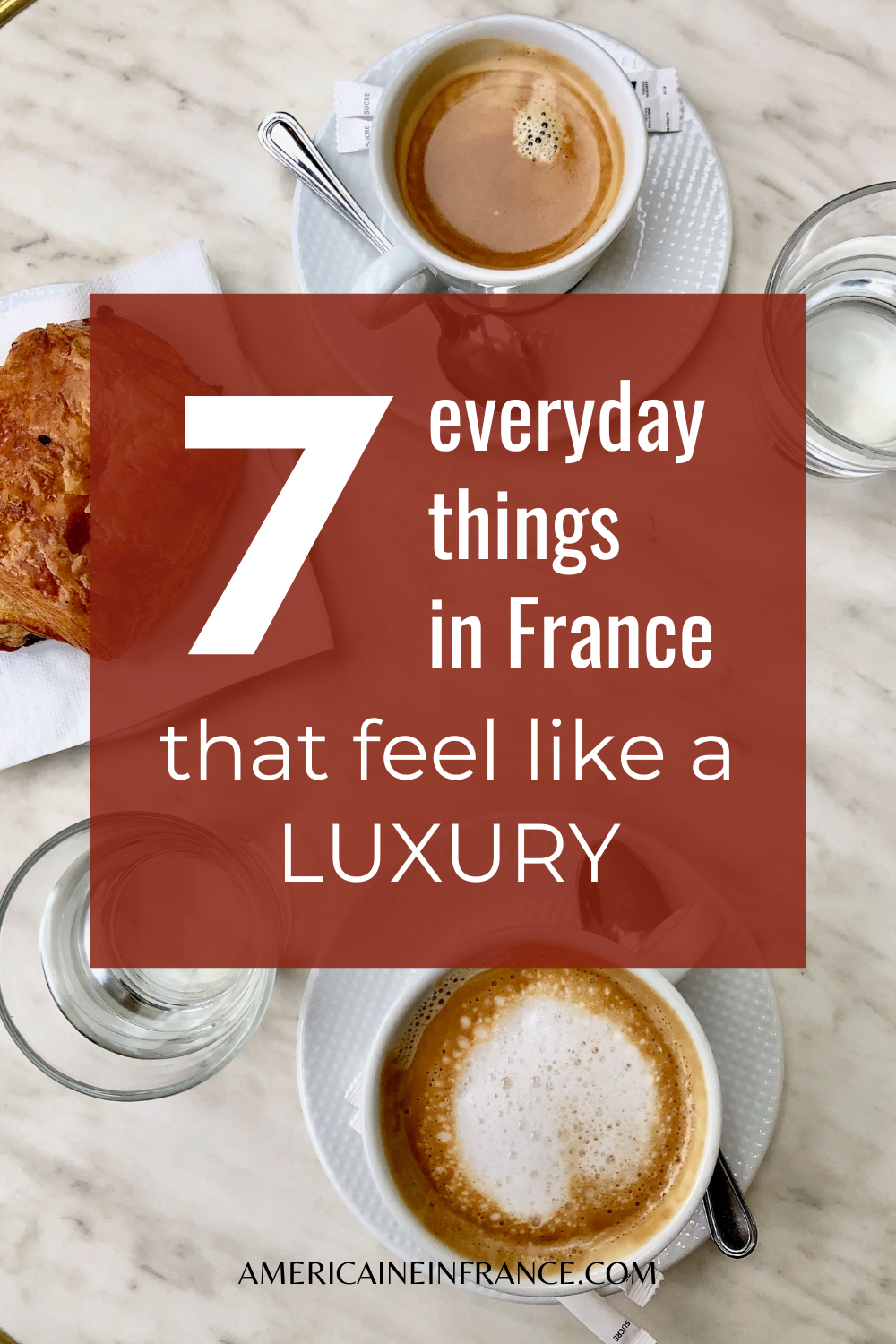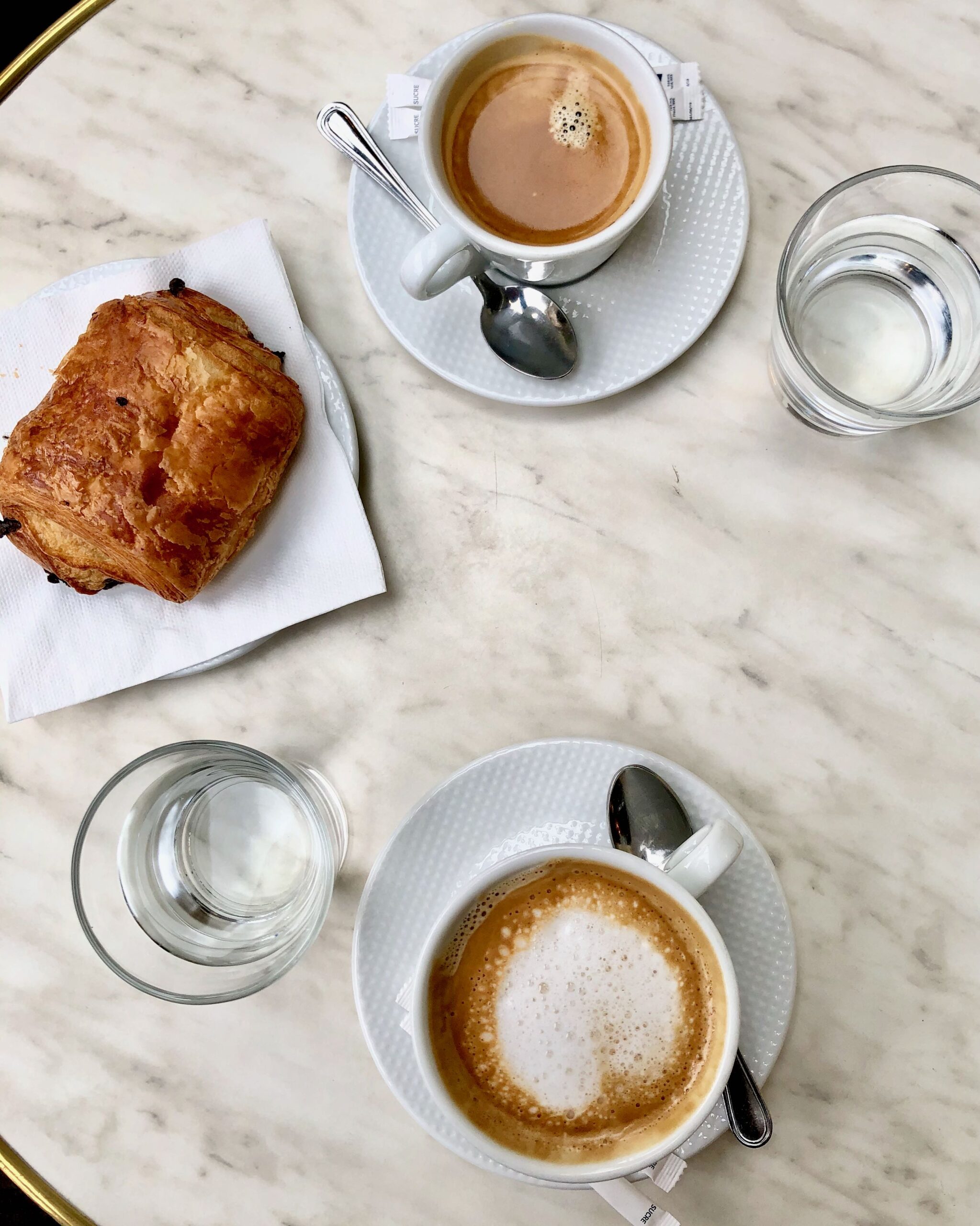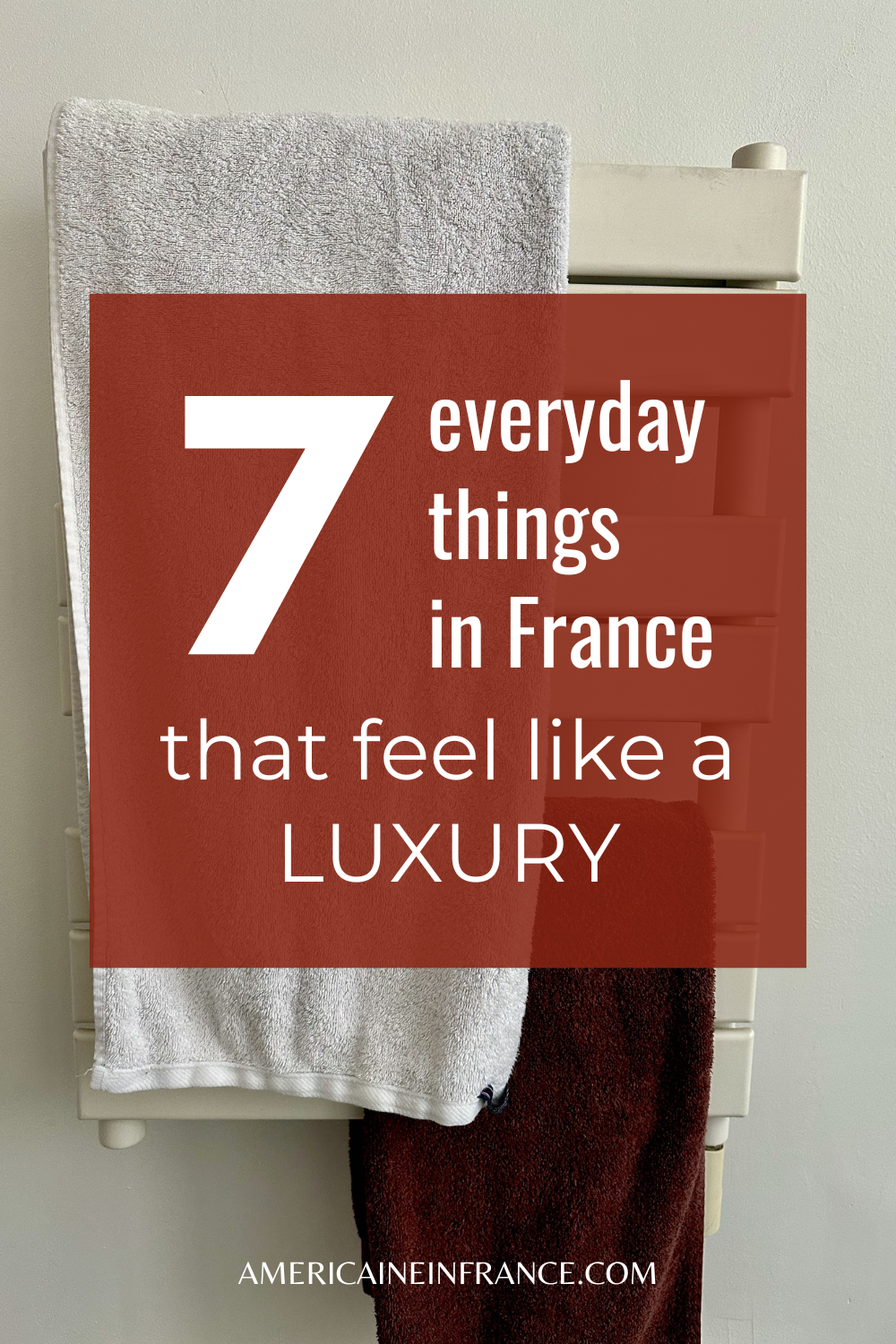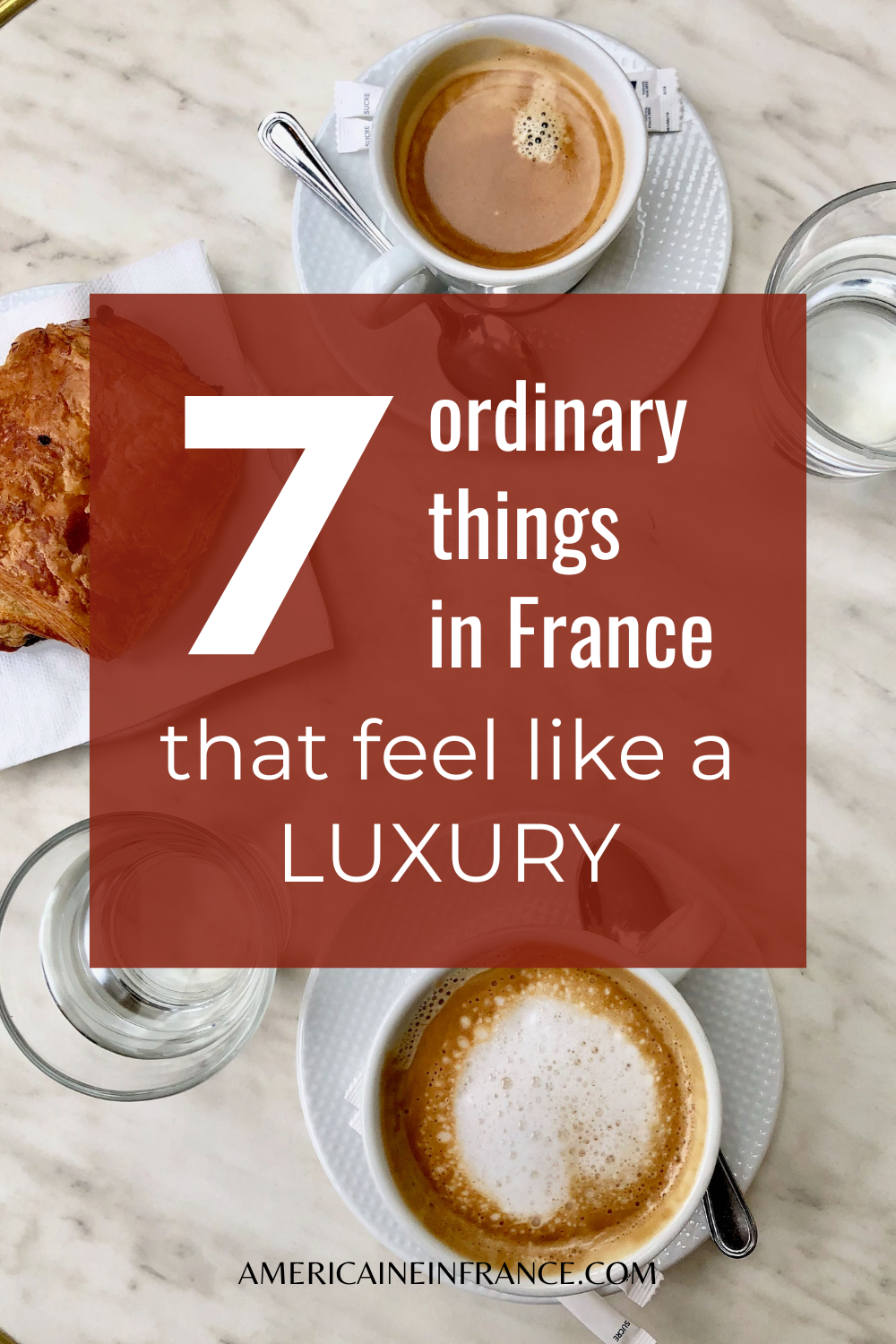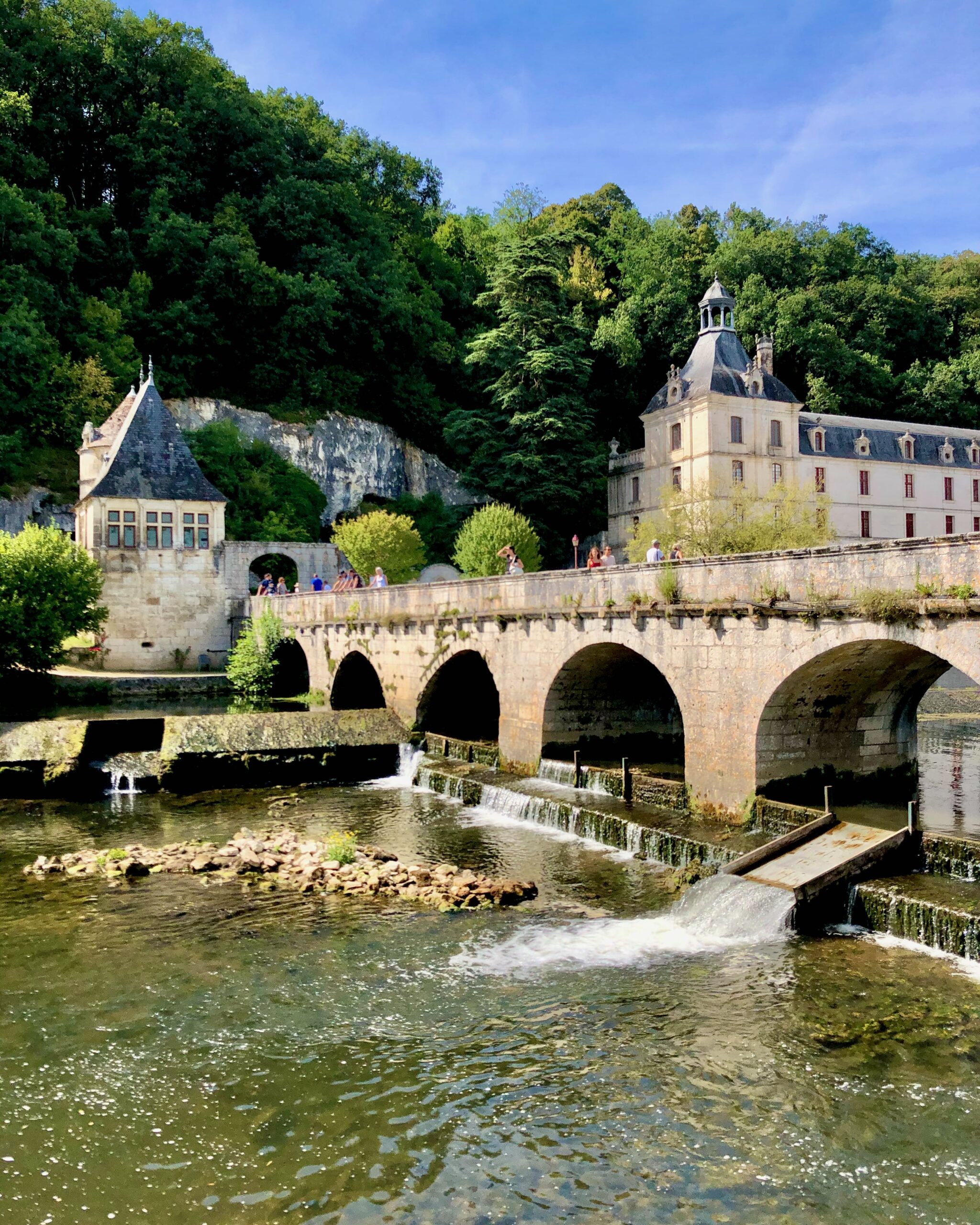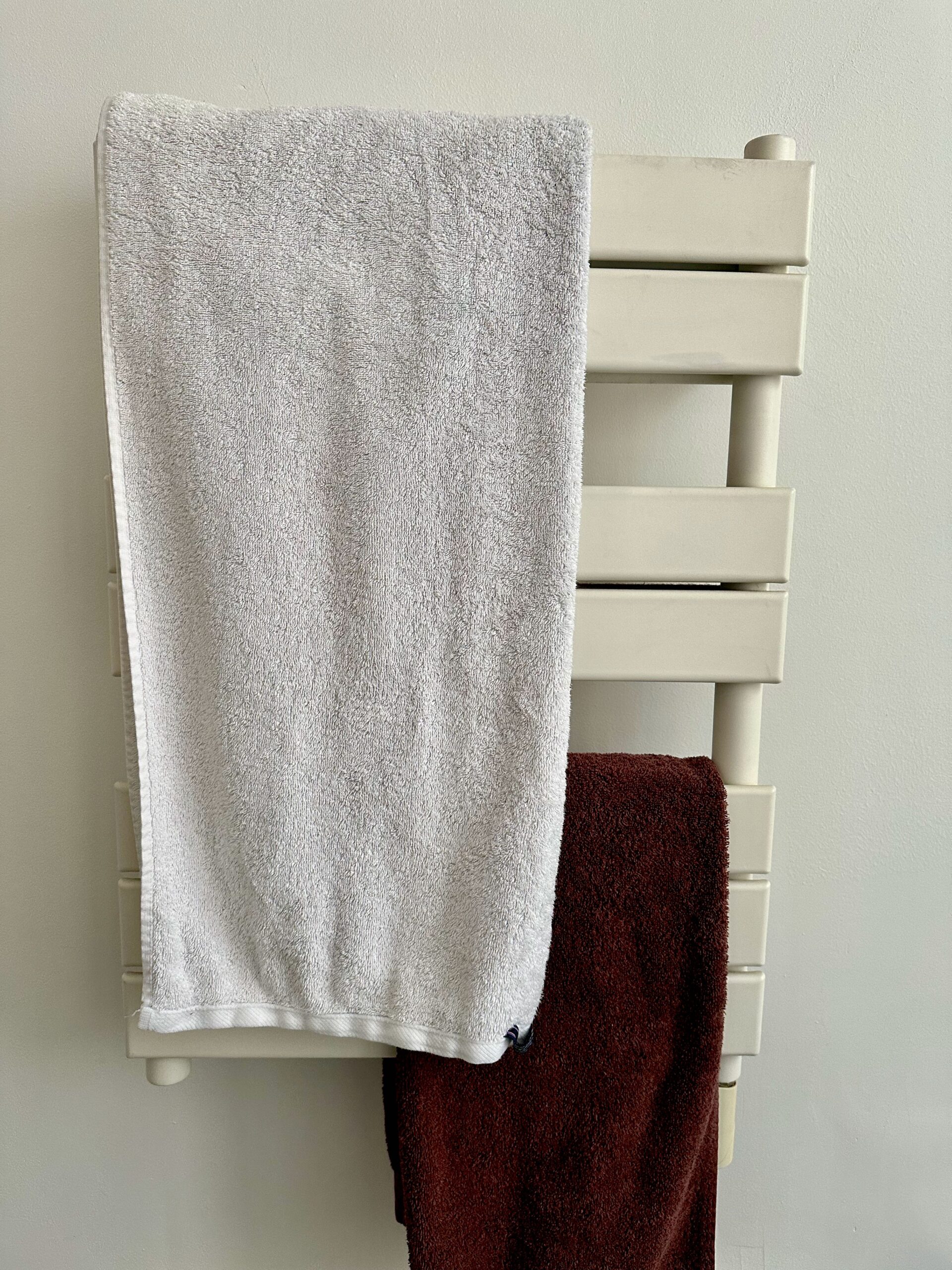This post may contain affiliate links, meaning that if you click and make a purchase, I may earn a commission at no additional cost to you. Read the full disclosure here.
France may be synonymous with many big luxury brands like Louis Vuitton, Cartier, and Moët & Chandon, but I think it’s the simpler things that make life in France seem luxurious.
Here are some everyday things in France that feel like a luxury to me as an American from the United States.
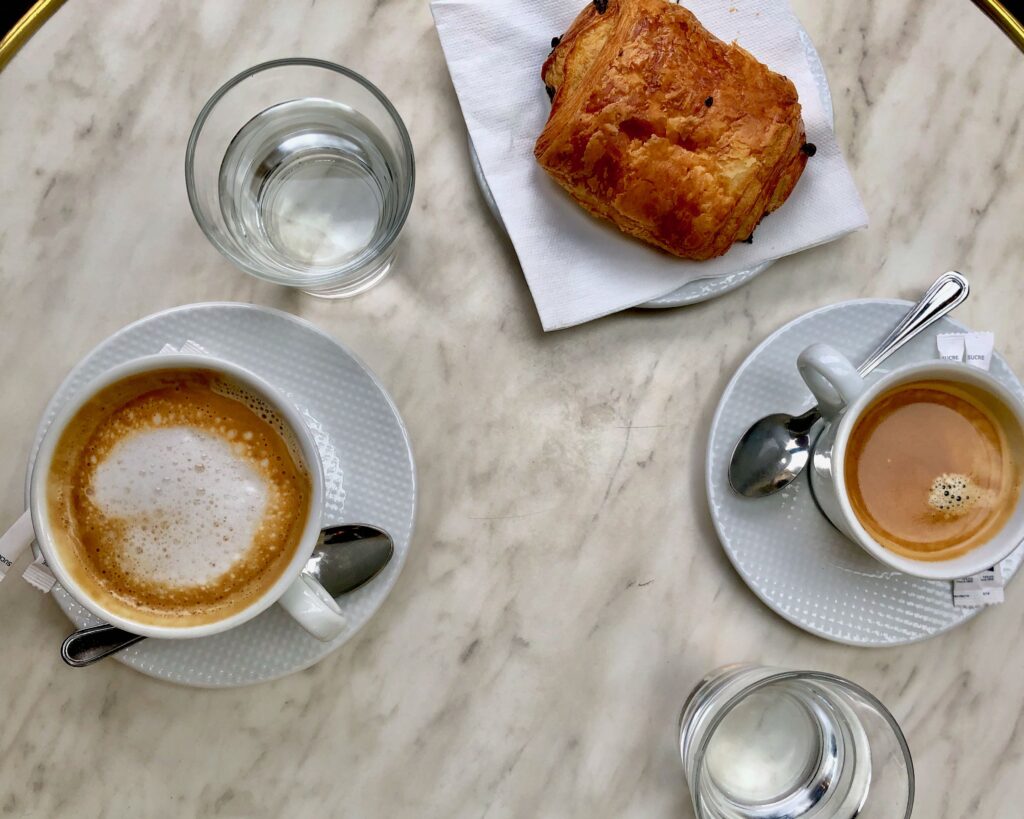
1. Pastries and Coffee Culture
Going out to a café or a bakery is relatively cheap, even in the capital. For the price of a few euros, you can leisurely enjoy a coffee, a flaky croissant, and a nice view from an outdoor seating area, without being chased off with the bill directly upon finishing your drink. What a treat!
Even with the rise in baguette prices, picking up fresh bread is an affordable luxury that is accessible to most. And it’s a simple pleasure that I savor regularly!
Partaking in relaxing coffee culture comes with a higher price tag in the US. Not to mention, the croissants really aren’t as good despite the exorbitant cost!
2. Cheap (Good) Wine
I feel absolutely spoiled spending only 7-8 euros and still getting a decent table wine. Truth be told, I’m not claiming that this constitutes as great wine. This price range is Frenchman-approved though, so don’t come at me!
At least double must be spent to indulge in a wine of a similar caliber stateside. (Pricing is dependent on where in the States you are doing your shopping, of course!)
3. Towel Warmers in the Bathroom
Is there anything better than wrapping a warm towel around yourself after stepping out of the shower on a chilly day?
In just a few minutes after turning on the towel heater, the bathroom is toasty and so is your towel. Placing your towel on the rack after you’re done allows it to dry nicely as well. Towel warmers efficiently add a high level of comfort to daily life.
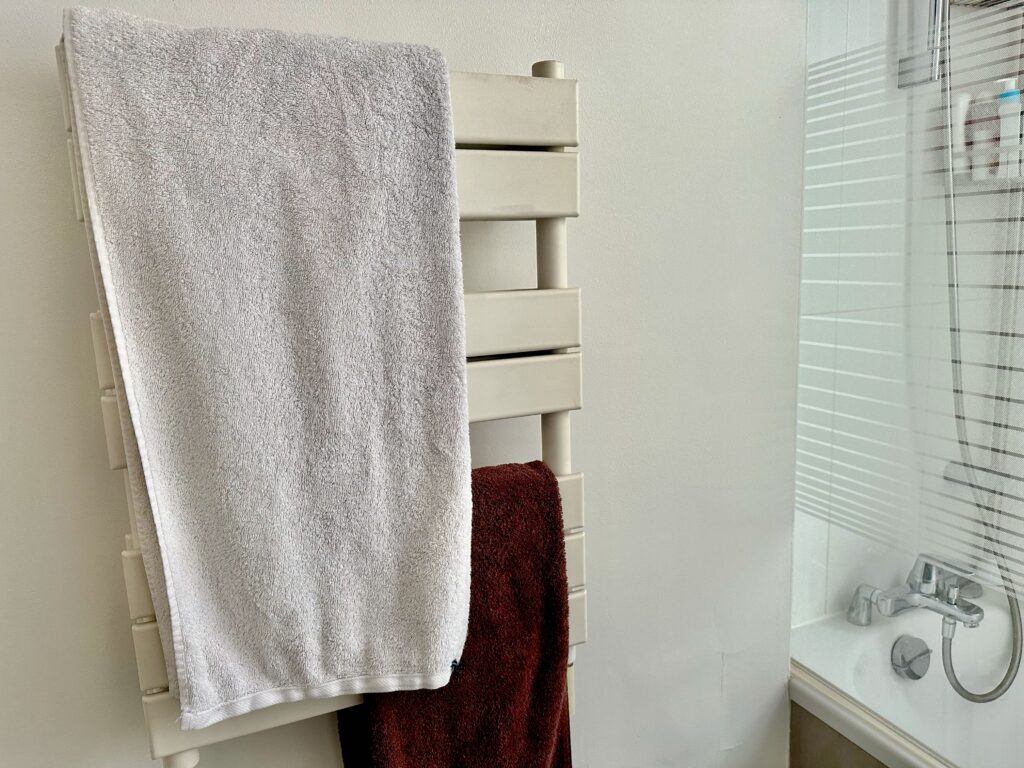
You won’t find towel heaters in all French homes, but they are a fairly standard item that no one would bat an eye at. Conversely, I think I’ve only encountered the occasional towel warmer in a hotel in the States.
4. Transportation Access and Infrastructure
In France, I can hop on a regional or high-speed train and bop around between cities and towns. I can take a plane and go to Spain for the weekend. I can plan a day trip to Brussels from Paris on a high-speed train… This feeling of being able to go anywhere is both liberating and extravagant!
Public transit is common throughout the country. Options vary depending on the size of the city or town. Even many small towns often have a bus line or two to get around town or a regional, local rail connection.
Not only is its internal infrastructure well-developed, but France is also well-connected in Europe and the world. Undeniably, France is a small country compared to the US. This and France’s proximity to other countries are certainly important factors resulting in the abundance of public transit options.
I may have grown up on the East Coast where things are well connected compared to other areas of the country, but I’ll be the first to admit that traveling within and out of the United States requires significantly more planning.
5. Paid Time Off
Employees in France get paid time off for vacation, illness, and becoming a parent. What you are entitled to in terms of time off and the amount paid is subject to a number of complicated calculations according to your employment status!
For full-time employees, vacation leave is a minimum of 5 weeks per year. (It generally accumulates at a rate of 2.5 days per month worked.) Paid holidays (jours fériés), like Labor Day (fête du travail) and Christmas Day (Noël), aren’t included in this holiday leave time!
As far as illness goes, there is no allocated sick leave in France. If you’re sick enough to warrant staying home from work, you let your employer know as soon as you can. Then you go to the doctor and get a note called an arrêt de travail. This note dictates how many days you can take off from work. When on an arrêt maladie, you can generally receive a daily allowance (indemnités journalières) equal to 50% of your daily salary, if you meet the conditions.
Self-employed individuals can receive paid sick time and maternity/paternity leave. However, the financial support is calculated differently and the benefits might not be equivalent to what is received by employees. Those running their own business are expected to plan for situations where they cannot work. And of course, self-employed people can take as much holiday time as they like, but they’ll need to negotiate with their boss regarding any wages paid. 😉
Coming from the United States, all of this time off feels incredibly generous! The fact that this time off is also paid brings things to a whole other level.
6. Public Health Insurance for All
Residents of France benefit from the public health insurance program, whether employed or not. Since it is a national, universal system, coverage is not tied to a job. Access to medical care is considered a basic right for all.
The peace of mind in knowing that my well-being won’t be jeopardized if I am not working is priceless and comes as a great comfort.
➡️ Note: Health insurance and medical care in France are not free.
Without going into too much detail, getting health care in France is relatively affordable and the pricing is transparent. I can go to a doctor or specialist without needing to navigate the landmine that is in-network and out-of-network care or high deductibles. For this, I am truly grateful for. Even though I’m doing my part by paying into the system, I often feel like I’m getting away with a really amazing deal.
7. History All Around
Exploring France, you’ll quickly encounter buildings and landmarks dating back hundreds and even thousands of years. Imposing castles, medieval architecture, prestigious universities, Roman temples, and sacred religious sites are all ready to be discovered.
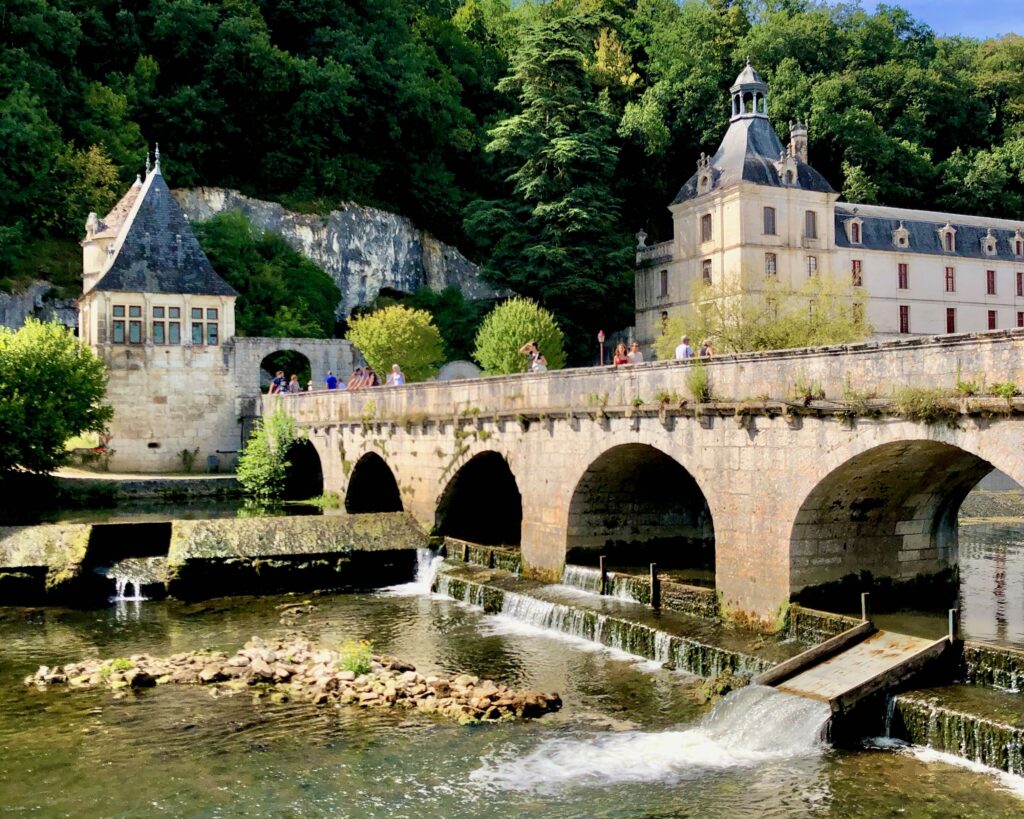
Let’s not forget the charm of the cobblestone streets of Paris as you stroll above the sprawling tunnels of the catacombs that stretch for miles in all directions. What a delight to be surrounded by such historical and cultural richness!
When visiting Europe, you are quickly struck by the fact that the United States is a relatively young country by world standards.
Are there any aspects of life in France that have felt like a luxury to you?
